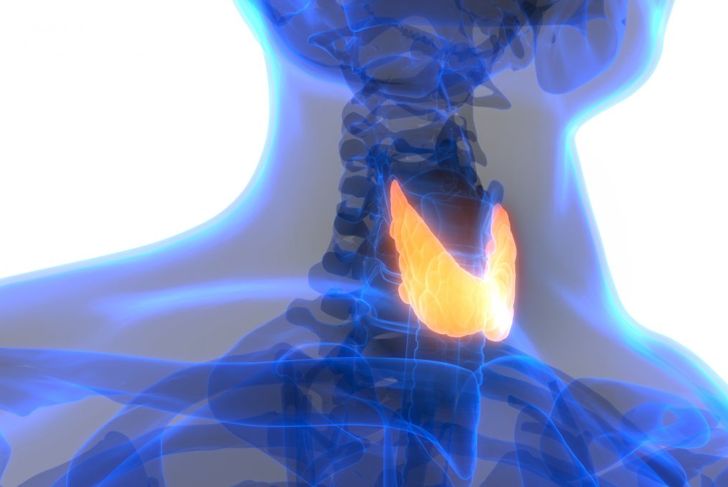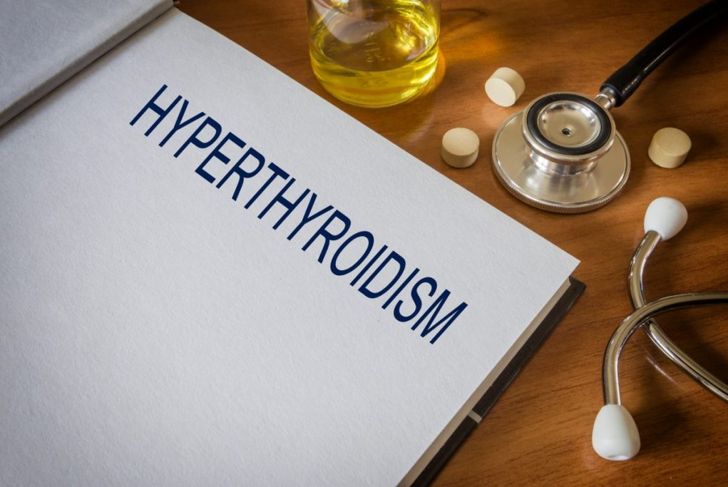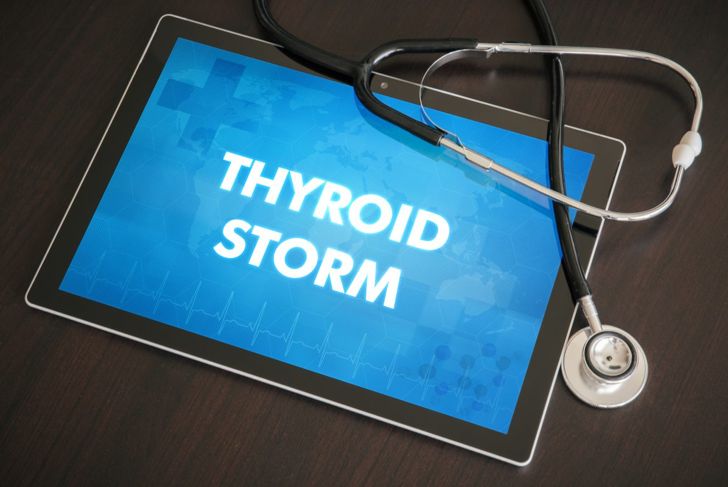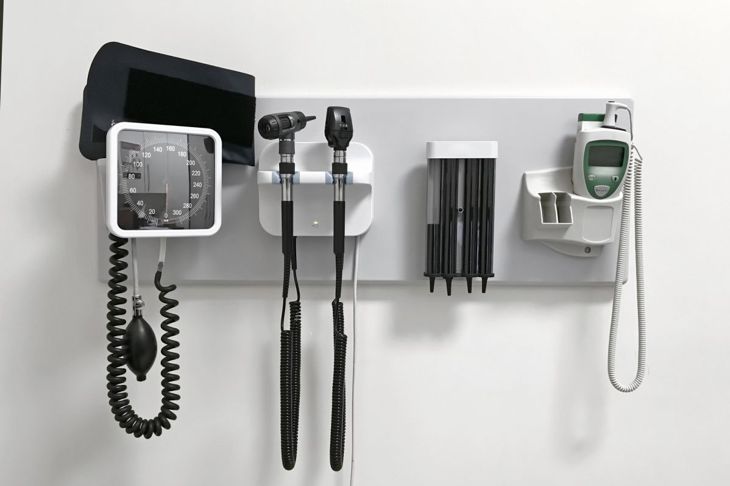A thyroid storm is a dangerous and acute manifestation of hyperthyroidism that can develop when an individual is untreated or undertreated. Thyroid storms are very rare; only one to two percent of all people with hyperthyroidism progress to the point of crisis. When the event does occur, it is considered a medical emergency, with mortality rates between 10 and 25%. Anyone who believes they are experiencing a thyroid storm should seek medical attention immediately.
What Is the Thyroid?
The thyroid is in the neck, above the collarbone. The organ is part of the endocrine system and is responsible for making hormones, including triiodothyronine (T3) and thyroxine (T4). These hormones have vast effects on the body; they increase the metabolic rate, stimulate fat breakdown, impact blood flow and body temperature, and are essential for normal growth and development.
Hyperthyroidism
Hyperthyroidism occurs when the thyroid produces excess hormones, and can develop when something affects the entire gland or just a single nodule. Some causes of an overactive thyroid are Graves’ disease, inflammation, overactive thyroid nodules, overconsumption of thyroid supplements, and pregnancy. Postpartum thyroiditis, excess consumption of iodine, and some antiarrhythmic drugs can also lead to hyperthyroidism.
Thyroid Storm
A thyroid storm occurs when the thyroid releases an excessive amount of hormones that cause metabolic functions to accelerate rapidly, eventually leading to system collapse. In some instances, this rare event is precipitated by a trigger such as surgery, trauma, infection, trauma, diabetic ketoacidosis, or preeclampsia in pregnancy.
Signs of Thyroid Storm
Symptoms of a thyroid storm are similar to the symptoms of hyperthyroidism, but they come on very quickly and are more severe. Signs include fever, weakness, rapid heart rate, tremor, restlessness, and GI symptoms such as diarrhea, nausea, vomiting, and an enlarged liver with jaundice. Confusion, severe mood swings, psychosis, and coma are also possible.
Diagnosis
Doctors may suspect a thyroid storm if a person presents with high systolic blood pressure and a diastolic that is lower than normal. Tachycardia is also common, as is a fever of greater than 102 degrees F. The person may sweat profusely, which can lead to electrolyte imbalances. Cardiac failure can also occur due to cardiac decompensation, arrhythmias, or pulmonary congestion.
Testing
In addition to a thorough physical exam, several tests help doctors confirm a diagnosis of a thyroid storm. Blood tests check the levels of free T3 and T4 and thyroid-stimulating hormone. Electrolyte levels and complete blood counts determine the severity of decompensation and identify possible triggers, particularly infections. The doctor will also evaluate heart, kidney, and liver function.
Emergency Treatment
Someone experiencing a thyroid storm requires emergency treatment and is often admitted to an intensive care unit. The immediate goals are to slow down thyroid hormone production, prevent the thyroid from releasing more, and decrease the effects of the hormones that are already circulating. The medical team will frequently administer large doses of anti-thyroid drugs. Other treatments are supportive and include supplemental oxygen, IV fluids, and cooling blankets. Beta-blockers can help lower heart rate and blood pressure, and some doctors will prescribe antibiotics as a preventative measure if they think an infection could be to blame.
Maintenance
If successful, emergency interventions lead to marked improvements in thyroid storm symptoms in 24 to 72 hours. Once hydration, electrolytes, temperature, neurological presentation, cardiac function, and other significant issues are stable, the focus of treatment switches to maintenance. Patient education can help ensure hyperthyroidism is well-controlled, to avoid another crisis.
Prognosis
Thyroid storms are medical emergencies that, if untreated, are usually fatal, as they lead to multi-system organ failure. Even with early treatment, the mortality rate is roughly 20 percent. Without treatment, it is between 50 and 90 percent.
Prevention
To prevent a thyroid storm, it is essential that people with hyperthyroidism see a doctor regularly to monitor and treat the condition. Keeping track of symptoms and taking the proper medication to control hyperthyroidism is very important to avoid a dangerous event. People who know they have hyperthyroidism should also strive to avoid stress and seek prompt treatment for infections.

 Home
Home Health
Health Diet & Nutrition
Diet & Nutrition Living Well
Living Well More
More




















